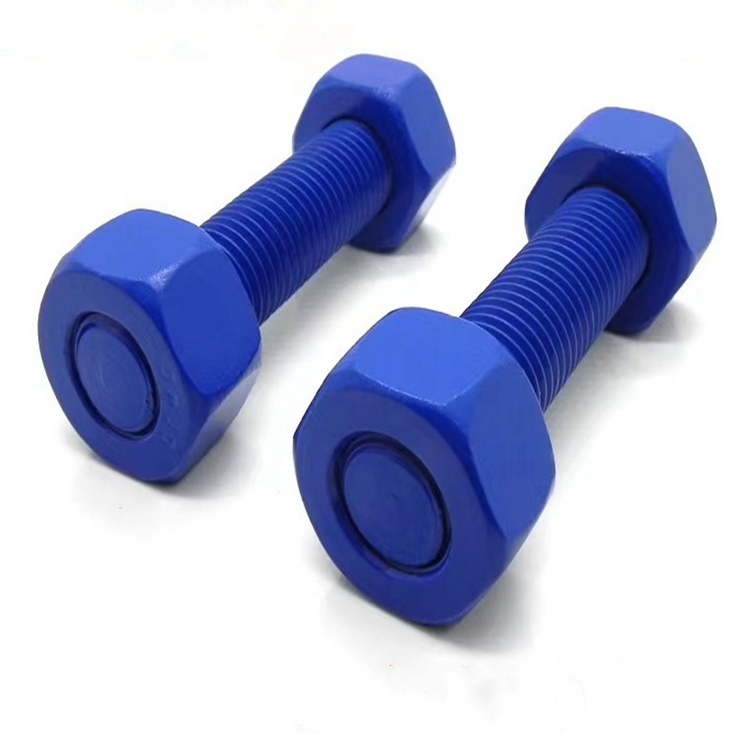1 inch concrete anchor bolts factories
Dec . 01, 2024 02:35 Back to list
1 inch concrete anchor bolts factories
Understanding 1% Concrete Anchor Bolts A Comprehensive Guide
Concrete anchor bolts play a critical role in construction and engineering, providing the essential support required to secure structures firmly to concrete. Among the various types of anchor bolts available, 1% concrete anchor bolts have gained attention for their specific advantages. This article aims to explore the nature of these bolts, their manufacturing process, applications, and considerations for selection.
What are 1% Concrete Anchor Bolts?
The term 1% concrete anchor bolts generally refers to anchor bolts designed with a specific percentage of carbon content, typically around 1%. This carbon content influences the strength, ductility, and overall performance of the bolts. High-strength materials are essential to withstand tensile forces, shear loads, and environmental factors, making these bolts suitable for a range of applications in construction projects.
Manufacturing Process
The production of 1% concrete anchor bolts is a meticulous process that involves various steps to ensure quality and performance. The manufacturing process can be broken down into several key stages
1. Material Selection The first step involves selecting high-quality steel, which possesses the desired carbon composition and other alloying elements to enhance strength.
2. Forging and Shaping The chosen material undergoes forging or machining to create the initial shape of the bolt. This ensures that the bolts have a uniform structure and proper dimensions.
3. Heat Treatment After shaping, heat treatment is applied to improve the mechanical properties of the bolts. This process involves heating the bolts to a specific temperature and then cooling them at a controlled rate, increasing their tensile strength.
4. Surface Coating To protect the bolts from corrosion, which is critical in outdoor or moisture-prone environments, a protective coating is often applied. This can include galvanization, powder coating, or other methods to enhance durability.
1 inch concrete anchor bolts factories

5. Quality Control Rigorous testing and quality control measures are implemented throughout the manufacturing process. This includes tensile tests, fatigue tests, and inspections to ensure that each bolt meets industry standards.
Applications
1% concrete anchor bolts are utilized in various applications where strong, reliable anchoring is essential. Some common uses include
- Structural Foundations Used to secure steel or wooden structures to concrete foundations, ensuring stability against vertical and lateral loads. - Industrial Equipment Employed in factories and warehouses to anchor heavy machinery and equipment to prevent tipping or movement. - Bridges and Infrastructure Essential for anchoring components of bridges, water towers, and other infrastructure to ensure longevity and safety. - Residential Construction Used in homes for anchoring elements like wall frames and decks, contributing to overall structural integrity.
Considerations for Selection
Selecting the right anchor bolt is crucial for ensuring safety and stability in construction projects. Here are some factors to consider when choosing 1% concrete anchor bolts
- Load Requirements Assess the loads (tensile and shear) that the anchors will need to handle. This will determine the size and strength of the bolt necessary for your project. - Environment Consider environmental factors such as moisture, salt exposure, and temperature extremes. The protective coating and material composition should be suited to withstand these conditions. - Installation Method Different types of anchor bolts may require specific installation methods. Ensure you have the necessary tools and understand the installation procedures involved. - Regulatory Standards Familiarize yourself with local building codes and regulations regarding anchoring systems to ensure compliance and safety.
Conclusion
1% concrete anchor bolts are an indispensable component in modern construction. Their strength, durability, and versatility make them suitable for a wide range of applications, from residential buildings to industrial settings. Understanding their manufacturing process, appropriate applications, and the factors influencing selection can aid construction professionals and engineers in making informed decisions.
In an industry that demands precision and reliability, investing in quality anchor bolts is essential for the safety and longevity of structures. Choosing the right manufacturer, ensuring adherence to quality standards, and recognizing the specific needs of the project will ultimately guide the successful implementation of these critical anchoring solutions.
Latest news
-
Reliable Axle Nuts Supplier | High-Quality Automotive Parts
NewsAug.19,2025
-
Premium Wire Bolts Suppliers | Durable & Reliable Fasteners
NewsAug.18,2025
-
Leading Metric Wood Screw Companies & Manufacturers
NewsAug.17,2025
-
Top Wire Bolts Suppliers - Quality & Durable Fasteners
NewsAug.15,2025
-
Trusted Wire Bolts Company | Quality Fasteners Supplier
NewsAug.14,2025
-
Reliable Wire Bolts Suppliers & Manufacturers for Global Needs
NewsAug.13,2025
